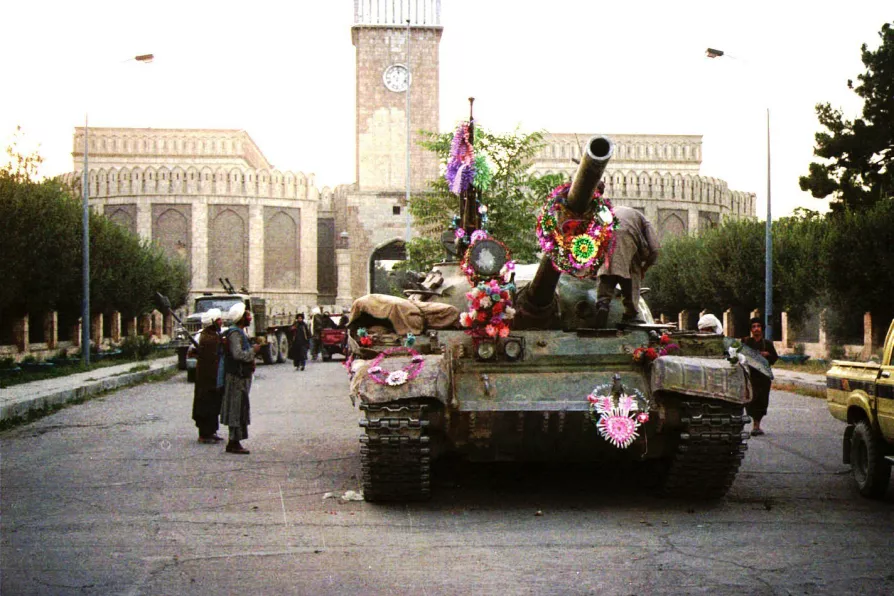Speakers in Berlin traced how Germany’s rearmament, US-led violence abroad and the repression of solidarity at home are converging in a dangerous drive toward war. BEN CHACKO reports
Six things you need to know about Afghanistan and the Taliban
When it comes to Afghanistan, the mainstream media hides the most inconvenient facts for the West, argues MARC VANDEPITTE

 History repeats itself: A tank manned by Taliban fighters outside the presidential palace in Kabul in 1996, when it first seized the Afghan capital
History repeats itself: A tank manned by Taliban fighters outside the presidential palace in Kabul in 1996, when it first seized the Afghan capital
1. Monstrous covenant with jihadis
THE story starts in 1979. Afghanistan had a left-wing government, which of course was not to the liking of the US. Zbigniew Brzezinski, President Carter’s adviser, devised the plan to arm and train jihadists – then still called mojahedin – in Afghanistan. The aim was to provoke a Soviet invasion, in order to saddle Moscow with a Vietnam-like scenario.
Carter followed his advice and provided the mojhedin the necessary help. The plan worked. The government in Kabul ran into difficulties and asked the Kremlin for help. The Afghan quagmire forced the Soviet Union to remain in the Central Asian country for 10 years.
Similar stories

One can only imagine what would happen if 2.2 million Palestinian refugees were pushed into Jordan, Egypt and other Arab countries, per Trump’s proposal, writes RAMZY BAROUD

By honestly telling Ukraine that it will not become a Nato member, Trump and Hegseth have opened the door to a possible end to the conflict but have also altered the political dynamic on both sides of the Atlantic, write MEDEA BENJAMIN and NICOLAS JS DAVIES

With its track record of leveraging cultural power for US gain and barely concealed promotion of coup attempts, the US Agency for International Development will not be mourned among the US’s southern neighbours, write JOHN PERRY and ROGER D HARRIS











